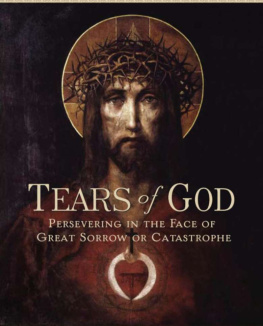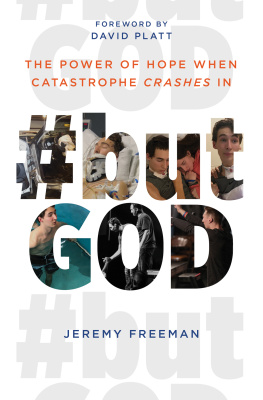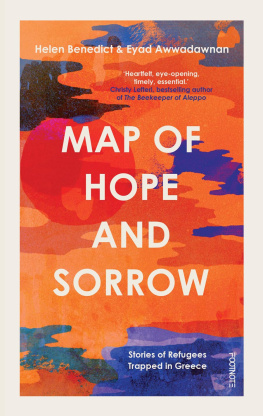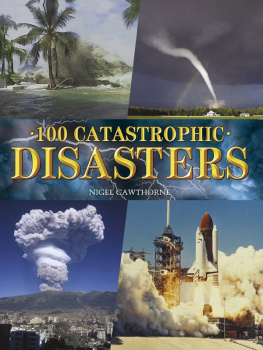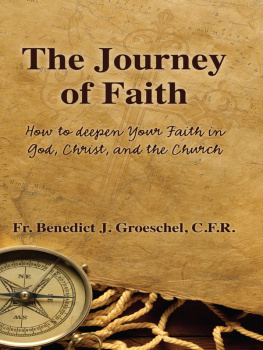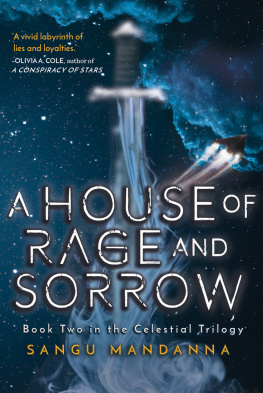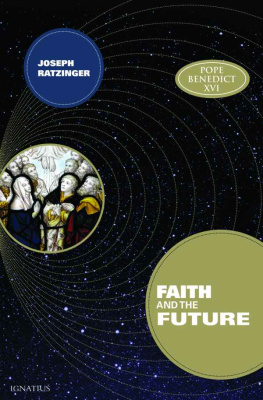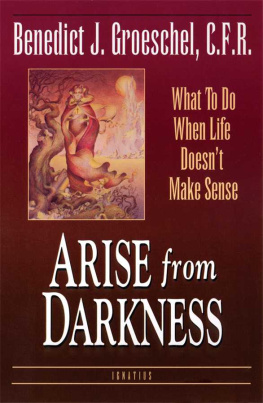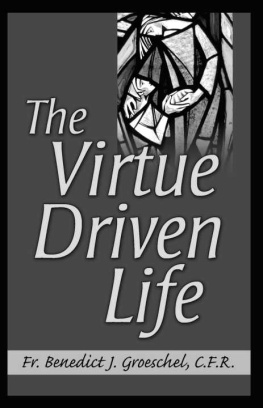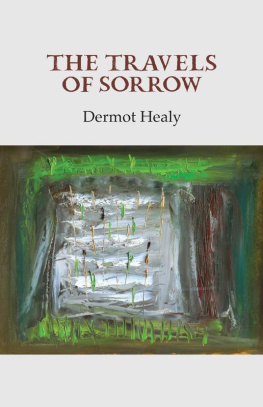
The Tears of God
Benedict J. Groeschel, C.F.R.
The Tears of God
Going on in the Face of
Great Sorrow or Catastrophe
IGNATIUS PRESS SAN FRANCISCO
Unless otherwise noted, Scripture quotations (except those within citations) have been taken from the Revised Standard Version of the Holy Bible, Second Catholic Edition, 2006. The Revised Standard Version of the Holy Bible: the Old Testament, 1952, 2006; the Apocrypha, 1957, 2006; the New Testament, 1946, 2006; the Catholic Edition of the Old Testament, incorporating the Apocrypha, 1966, 2006, the Catholic Edition of the New Testament, 1965, 2006 by the Division of Christian Education of the National Council of the Churches of Christ in the United States of America. All rights reserved.
Cover art: ''For God So Loved the World...''
1999 by Nelson Woodcraft
(For information on this image as well as a full line of handcrafted, high-quality Catholic religious goods, contact: Nelson Woodcraft, P.O. Box 4515 Steubenville, OH 43952. Telephone 1-800-895-6267. www.nelsonwoodcraft.com)
Cover design by Riz Boncan Marsella
2009 Ignatius Press, San Francisco
All rights reserved
ISBN 978-1-58617-289-3
Library of Congress Control Number 2008933492
Printed in the United States of America
I gratefully dedicate this book to all who helped me to survive a catastrophebeing hit by a car on January 11, 2004. I am grateful to God for making it possible for me to think and work and even get around.
This book is an act of gratitude to God and an attempt to help others facing a catastrophe. I wish to thank Father John Lynch and David Burns who were with me and remained with me at the time ofthe accident. Their presence, no doubt, kept me alive because the attending physicians had given up when I had no vital signs for fifteen minutes. In response to an appeal from Father Lynch, they went on, and after another thirteen minutes, my heart started to beat again.
I will be ever grateful to the doctors, nurses, and staff of Orlando Regional Medical Center, and especially to the trauma team. I am also very grateful for the support I received from my sister Marjule, who remained at my side, and all the friars who came and remained with her and supported her during those difficult weeks. I am also grateful to thousands of people who prayed for me, especially through EWTN, and to the fifty thousand people of many denominations and faiths who sent me e-mails, letters, and cards telling me of their prayers. Whatever one wishes to conclude, prayer is a very effective means of responding to catastrophe.
I wish to thank an anonymous hermit priest, who prepared this manuscript, and Kathie McCusker, who carefully checked the text.
Fr. Benedict J. Groeschel, C.F.R.
January 11, 2008
Trinity Retreat, Larchmont, N.Y.
Contents
Prayers and Meditations
Preface
Faith and Catastrophe
Some time ago, I published the most popular book I ever wrote, Arise from Darkness . It is a book about what to do when life doesn't make sense. Many people have told me that it was helpful to them in difficult times with problems of the family, with the Church, with finances, with themselves. I became aware, however, that there was another group of people who read the book but whom I had not reached: those who had suffered catastrophes or horrors. We all have sorrow, but we don't all have the horrible in our lives. But it does come. It comes to people we know, and maybe someday it will come to us, and we will have to be prepared.
I had thought of waiting to write a book like this until I was dying of a terminal illness because then I would have a personal experience of the catastrophic. Devastating events of life have happened to me in the past, but nothing that I could call a real catastrophe. Then, I was struck by an automobile and lived through a real catastrophe. It turned out that it was not as bad at it originally seemed, and I have been able, with limitations, to get back to my pastoral work. But it lives on still. As I awoke in the hospital from three weeks of unconsciousness and realized that I could hardly move, I thought, ''Well, Benedict, you've had your catastrophe. Get writing.''
I am writing this book now, first of all, for those who have experienced horror or catastrophe in their lives. This includes the appreciable number of people that you read about in the course of a month in the newspapers of any city. Not only are there murders and accidents and firefighters or police killed in the line of duty, there is often the terrible news of young men and women being killed in military service. As I write this, we are involved in the conflict in Iraq, which frequently brings accounts of the deaths of many innocent people on all sides. Not only this, but we read about natural disasters ranging from tornadoes to the collapse of bridges. We read about unspeakable tragedies in families where sometimes a family member, apparently out of the blue, kills other members of the family or innocent children, or a neighbor loses his mind and goes on a rampage, as happened in the case of the girls in the Amish schoolhouse in 2006.
These are all horrors and catastrophes. Add to them the death of small children, whose terminal illnesses are catastrophic. The death of an older person, although it may leave many people deeply saddened, is not usually considered a catastrophe; when the person is the mother or father of small children, however, it deserves that designation. Personal moral failures or false accusations often bring catastrophic consequences, which are generally not described as horrors.
This book is written especially for those who are in this category, who are experiencing or have recently experienced horror or catastrophe.
It is also written for those who are closely related to those who have experienced catastrophefamily and close friends. These are people who are deeply affected, but not directly damaged by the catastrophe. They are there to help. They participate by sympathy and empathy in each phase of the problem, and their own lives are often changed almost as much as those who have been the victims.
Third, this book is for those who are aware of catastrophes around them, who read about them in the newspaper and pause to say a prayer, who think about those who have been deeply hurt and realize that such things could happen to them. Not long before the writing of this book, a beautiful family was killed by criminal desperados who broke into their home and left only one parent alive. Day after day, I remembered this family in my prayers, and although I never met them, I suffered with them. Don't we often think of such things as we pass through life? And each one of us who is thoughtful and reflective knows that such a thing could happen to us. We pray to God that it doesn't, but it is wise to meditate on the possibility and to think about what you would do and where you would turn. This book is also for this group of people.
A Book about Faith
It is rather obvious, considering the authorship of this book, that it is about faith, faith in God and, further, faith in a God who cares about us when we are in need. But by catastrophe, faith can be severely tried, and it may even lead to questioning. Faith in God has often, in the past, particularly in the Bible, been put to great trial. Over and over again the psalmist in the Jewish Scriptures asks God: ''Where are You? Why did You let this happen? How long are You going to let it go on?''
Psalm 88
Lord my God, I call for help by day;
I cry at night before you.
Let my prayer come into your presence.

